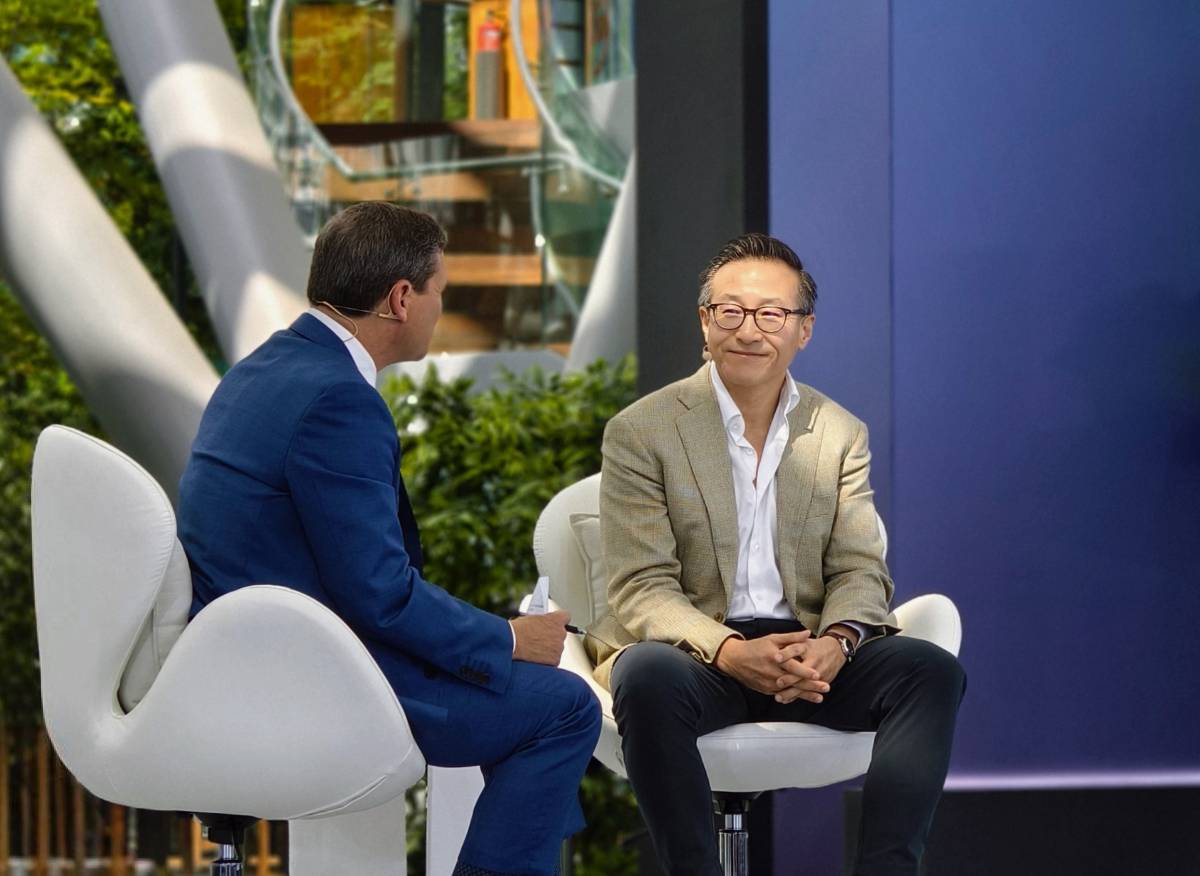
Domestic Chinese tourists enjoy a night show at a theme park. Photo credit: Alibaba Group
This week, Alibaba Group’s travel service Fliggy noted that domestic tourists in China are holidaying in cooler countryside areas, according to data from last month.
In other news, Tmall encouraged purchases of environmentally responsible household appliances this week by sharing RMB310 million ($44.5 million) worth of shopping vouchers with consumers.
Meanwhile, Alibaba unveiled traditional Chinese, Japanese and Korean script variants on its custom Alibaba Sans typeface at the group’s annual design conference in Hangzhou.
Chinese Tourists Seek Out Shade During Heatwaves
Chinese tourists are flocking to the countryside to keep cool during recent heat waves, Alibaba’s Fliggy reported this week.
The travel platform recorded a 30% increase in tourists visiting Jilin province near Russia and the mountainous Guizhou province renowned for its karst wetlands.
Those who cannot make it to cooler destinations are looking for leisure in lower-temperature environments and skiing category sales jumped 15% in July on the Fliggy platform.
Online orders for night tours at theme parks and evening boat rides also surged 25% on Fliggy over the last year.
“It’s been a full-house every single night since we launched the new evening shows in August,” said Li Mengxian, brand manager at Taihu Longzhimeng Amusement Park, in a Chinese written interview.
Tmall Boosts Eco-friendly Home Appliances Consumption
This week, Alibaba’s B2C online marketplace Tmall offered RMB310 million worth of shopping coupons to encourage spending on eco-friendly home appliances.
The online penetration rate of home appliances on Tmall grew to 52.9% in 2021, according to the platform’s “New Trends in Home Appliances Consumption Report 2022” published earlier in the week.
“On Tmall, over 60% of home-appliance merchants offer energy-efficient choices for consumers,” said Tmall Vice President Yang Guang in a Chinese statement.
Homebound Chinese residents used the pandemic as an opportunity to invest in their households, with appliance modernization a core theme. Where it once took up to ten years for consumers to upgrade their washers, fridges and more, people are buying new products every two years, the report added.
Tmall has partnered with brands including Midea and Siemens, Hisense, and Bosch for consumers to trade in their old products.

Alibaba Sans Widens Script Variants
Alibaba on Friday debuted its custom Alibaba Sans typeface in traditional Chinese, Japanese, and Korean script, which will be freely available for general use.
People can use the typeface for private and commercial purposes, the company said at its annual U Design conference, where creative industry specialists gather for four days of exhibitions and panel discussions.
“We are constantly receiving inquiries as to whether the Alibaba Sans licensing is free,” said Lin Chiang-Hui, head of the Alibaba Sans project, in Mandarin.
This, in part, led the company to launch a font licensing checkup tool to help businesses, designers, and artists check if their fonts are fully licensed for the intended use.
Four years into its first launch, the Alibaba Sans family of typefaces has been downloaded over four million times, according to Alibaba.
INTERVIEW: Lazada’s General Counsel Gladys Chun on Digitalization and Disruption in Southeast Asia
The future of Southeast Asia is digital, diverse and still waiting to be written, according to Gladys Chun, General Counsel at Lazada, Alibaba’s flagship e-commerce platform for the region.
“In my role, the opportunities to participate and make a difference in shaping the development of laws and regulations on e-commerce in Southeast Asia are a legacy for my future generations,” said Chun told Alizila.
Digitalization and building greater visibility for women in the workplace go part and parcel, according to Chun, who has observed the effects of both firsthand.
“Within Southeast Asia, many of us were brought up in a culture that stereotyped women as primary caregivers at home. However, with the advancement of technology, this mindset is shifting,” she said.
Watch the video to hear Chun’s top tips for women in the workplace.
How Brands Can Support Sustainable Consumption in Asia
Consumers in Asia-Pacific are among the most ESG-driven in the world, creating demand that has left brands scrambling to catch up.
Environmental and socially-conscious concerns steer shopping choices among 14% of consumers in Asia-Pacific and Europe, compared with around 8% in the U.S., a global survey earlier this year by consultancy Bain & Co. revealed.
But the supply of sustainable goods has fallen short.
How can retailers and brands keep pace? Alizila’s Managing Editor Alison Tudor-Ackroyd spoke with Zara Lightowler, co-author of the survey and an associate partner at Bain & Co., to learn more.
Read the full interview here
Alibaba Launches Carbon Ledger to Drive Eco-friendly Consumer Behavior
Alibaba rolled out a carbon ledger on Monday that promotes greener lifestyles by rewarding consumers for adopting eco-friendly behavior.
Consumers will earn points for making low-carbon choices within Alibaba’s ecosystem, such as buying energy-efficient appliances, recycling boxes, and declining disposable utensils with takeout orders. They can use the points to claim digital badges and shopping discounts on Alibaba’s e-commerce platforms.
“We hope to leverage our unique influence as a leading digital platform operator to mobilize sustainable behavioral changes and environment-friendly actions,” said Dr. Chen Long, Vice President of Alibaba Group and Chair of Alibaba’s Sustainability Steering Committee.
To limit global warming to 1.5°C above pre-industrial levels, consumers globally will need to reduce consumption emissions to a per capita of around 2 to 2.5 tons of carbon dioxide equivalent by 2030, and to 0.7 tons by 2050, according to a United Nations Environment Program report in 2020.
Learn more about Alibaba’s green efforts here




